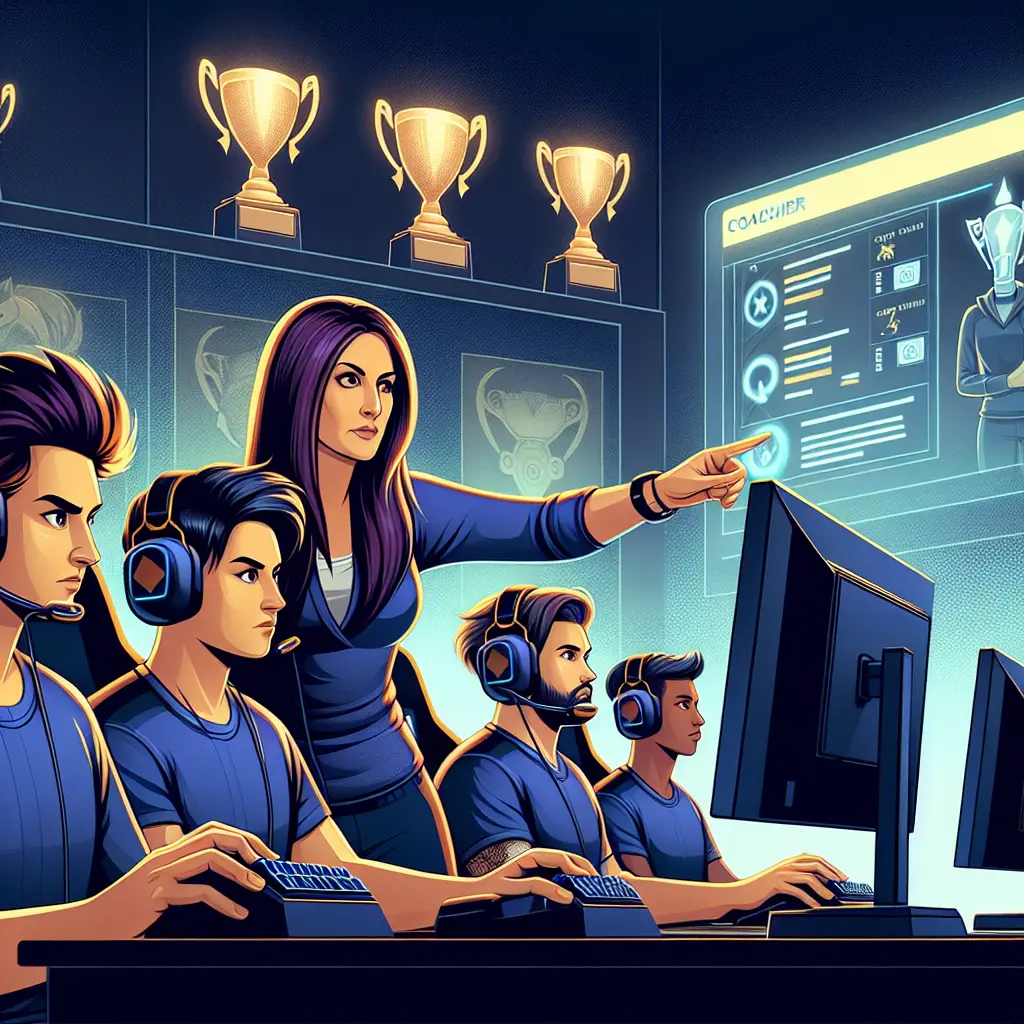
In the dynamic realm of esports, where the digital battlefield is both a stage and a crucible for talent, the role of coaching is paramount. As esports coaching evolves, it serves as a transformative force driving esports team success. This section delves into how effective coaching in esports molds team dynamics, enhances performance, and navigates the complexities of this burgeoning industry.
The Expanding Horizons of Esports Coaching
The announcement of the Olympics' First Esports Games in 2025 underscores the burgeoning recognition of esports on a global stage. This milestone highlights the need for robust coaching strategies to prepare teams for such prestigious competitions. The role of coaching in esports extends beyond traditional gameplay tactics; it involves a holistic approach encompassing mental fortitude, strategic acumen, and teamwork.
Furthermore, the expansion of prominent teams like G2 Esports into the agency world reflects a strategic shift towards comprehensive team management models. By leveraging insights from various industries, esports organizations are better equipped to develop tailored training programs that address both individual and collective growth.
Core Responsibilities of an Esports Coach
The responsibilities of an esports coach are multifaceted, focusing on improving performance through targeted coaching techniques. Coaches are tasked with:
Developing Team Dynamics: Fostering cohesion and synergy among players is essential. This involves understanding individual strengths and integrating them into a unified strategy.
Leadership Development: Nurturing leadership within teams is crucial for cultivating resilience and adaptability, both key factors for success in high-pressure scenarios.
Strategic Planning: Crafting innovative gameplay strategies that leverage current meta trends and counter opponent strategies.
The Impact of Coaching on Esports Teams
The impact of coaching on esports teams is profound, influencing both tangible results and intangible aspects such as player morale and motivation. Effective coaching translates into:
Enhanced Performance Metrics: Well-coached teams exhibit superior coordination, rapid decision-making, and strategic foresight, critical for success in competitive matches.
Psychological Well-being: Coaches play a vital role in maintaining players' mental health, offering support and guidance to navigate the stresses of competitive play.
For instance, the recent projection that the Esports Market will reach USD 7.27 Billion by 2030 emphasizes the economic potential and competitive intensity within the sector. In this context, effective coaching becomes a significant differentiator, providing teams with the edge needed to thrive financially and competitively.
Evolving Coaching Techniques in Esports
Esports coaching techniques are continuously evolving, drawing from traditional sports methodologies and adapting to the unique demands of digital competitions. Innovations such as D-BOX's haptic technology in motorsport simulations highlight how immersive experiences can enhance training efficacy.
Key advancements include:
Data-Driven Analysis: Utilizing analytics to refine strategies and improve individual player performance.
Cross-Platform Training: Preparing players for versatile gameplay across different platforms and formats, reflecting partnerships like that between Super League and Meta-Stadiums.
Case Study: G2 Esports
G2 Esports exemplifies successful implementation of advanced coaching strategies. By hiring expertise from the agency world, G2 has broadened its focus beyond gaming to encompass brand development and strategic partnerships (source). This approach not only enhances their competitive edge but also positions them as leaders in the esports industry’s growing market.
Challenges and Opportunities in Esports Coaching
As esports continues to integrate into mainstream entertainment, coaches face unique challenges and opportunities:
Diverse Game Titles: With the Olympics yet to finalize which games will feature, coaches must prepare teams for multiple scenarios, necessitating flexible training regimes.
Market Growth: The projected growth of related sectors, such as video streaming reaching USD 1,277.4 million by 2034 (source), indicates increased opportunities for exposure and revenue. Coaches must navigate these opportunities to optimize team visibility and engagement.
Conclusion: Elevating Esports Through Coaching Excellence
In the ever-evolving landscape of esports, coaching stands as a fundamental pillar supporting team success. The insights shared highlight the multifaceted role coaches play in shaping not just the tactical but also the mental and strategic facets of a team. Here are the key takeaways:
Expanding Horizons: The global recognition of esports underscores the necessity for advanced coaching strategies that extend beyond traditional gameplay.
Core Responsibilities: Coaches are instrumental in developing team dynamics, fostering leadership, and crafting strategic plans that align with current meta trends.
Impact on Teams: Effective coaching enhances performance metrics and supports players' psychological well-being.
Evolving Techniques: By embracing data-driven analysis and cross-platform training, coaches equip players to excel in diverse competitive environments.
Challenges and Opportunities: As esports integrates further into mainstream entertainment, coaches must adapt to diverse game titles and capitalize on market growth opportunities.
Ultimately, the role of coaching in esports transcends mere guidance; it is about crafting a vision for success and nurturing talent to reach its fullest potential. As we anticipate events like the Olympic Esports Games, let's recognize the pivotal influence coaches wield in shaping the future of esports.
I invite you to share your thoughts or experiences on this transformative role. How do you see coaching evolving in the next few years within esports? Your insights could spark a meaningful conversation.
Thank you for joining me on this exploration of esports coaching.
Lucas Bennett